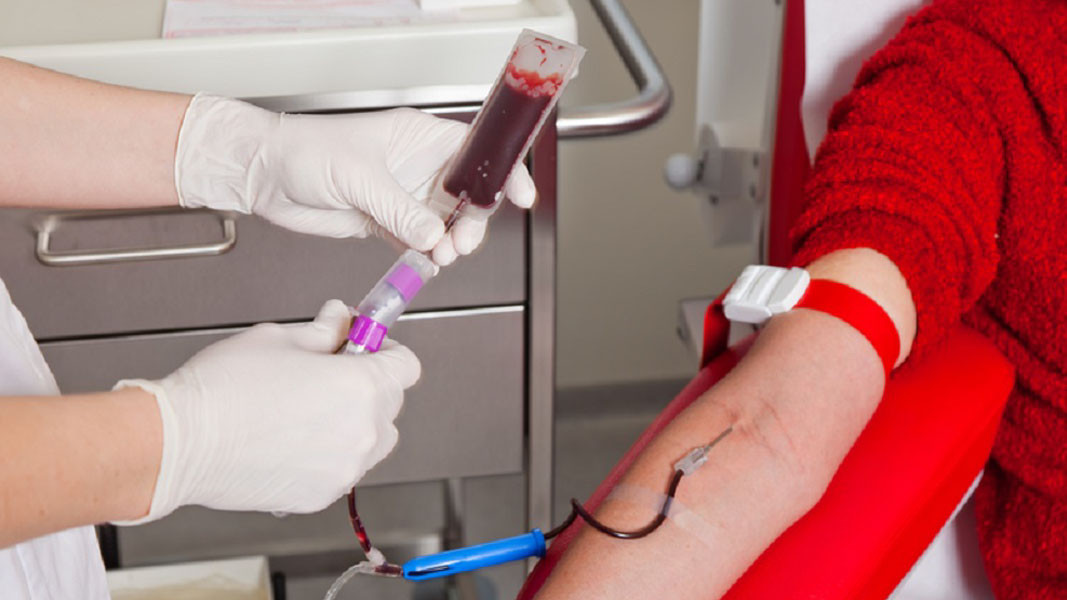There is no need to convince anyone that donating blood means giving someone a chance to live. The World Blood Donor Day, which is marked on June 14, aims to raise global awareness of the need for safe blood and blood products for transfusion and of the critical contribution voluntary, unpaid blood donors make to national health systems.
Anyone who has a desire and has realized that blood donation is a noble act, can donate blood at any time of the year, said the Director of the National Center of Transfusion Hematology Dr. Nikolay Nikolov. In his words, blood donation should not be done via campaigns. It should happen all year round, which would allow the health facilities to receive blood on a regular basis. However, the Covid-19 pandemic has affected this sphere as well.
“We have registered a slight decline in the number of people donating blood and blood products- Dr. Nikolov said in an interview for Hristo Botev channel of the Bulgarian National Radio. – In comparison with 2018, when the number of blood donors increased with 3% to 4%, in 2019 and 2020 the number of blood donors fell between 3% and 6% in all centers for transfusion hematology in Bulgaria.”
How blood donation is arranged amid the Covid-19 pandemic?
“People can donate blood 28 days after they are diagnosed with coronavirus infection via a positive PCR test result, specified Dr. Nikolov. As for the inoculations against Covid-19, when the Covid-19 vaccine is administered in two doses, people cannot donate blood between the first and the second shot. They can do so at least 28 days after the second shot. These rules apply not only for blood donation, but also for donation of convalescent plasma”, specified Dr. Nikolov.
“So far, we have taken, processed and sent more than 3,500 therapeutic doses of 200 ml. Until the end of 2020, the National Center of Transfusion Hematology sent convalescent plasma to hospitals across the whole country. Later, the regional centers joined in as well”, reminded Dr. Nikolov.

This year’s slogan of the World Blood Donor Day is “Give blood and keep the world beating”. It reinforces the global call for more people all over the world to donate blood regularly and contribute to better health.
“More than 80% of the people who give blood in this country are close relatives to the recipients. Sometimes, we experience difficulties, especially when it comes to a rare blood type and we ask the relatives of the patient to donate blood, as there is high probability that there is a person with the same blood type among them.”
There are people who stand near blood donation centers and offer to donate blood for money. However, Dr. Nikolov specified that this has nothing to do with the activities of the blood donation centers in Bulgaria.
Compiled by: Elena Karkalanova (based on interview by Martina Krasteva, Hristo Botev channel of the BNR)
English version: Kostadin Atanasov
Photos: libraryThe Bulgarian national minority in Albania is one of the largest in the country, according to data from the latest official population census. A total of 7,057 individuals identified as Bulgarians. For comparison, 23,000 people identified as Greeks,..
From today, residents of Stara Zagora, young and old, can send their letter to Santa Claus. A letterbox has been set up in the foyer of the city's State Puppet Theatre to collect messages for Father Christmas. The cultural institution guarantees that..
A Christmas tree with Bulgarian decorations has been placed in a central location at the Griffin Museum of Science and Industry in Chicago. For the fifth consecutive year, Bulgarians living in Chicago crafted the lavish decoration of the Bulgarian..
An innovation for the treatment of diabetic foot ulcer using the patient's own tissue and artificial intelligence has been implemented at the University..
Over 3.5 million Ukrainians have arrived in or passed through Bulgaria since the beginning of the war. Nearly 200,000 people have found temporary..
At the Bulgarian Embassy in London, Prof. Bettany Hughes presented excerpts from the new BBC series - Wonders of Bulgaria. Prof. Bettany..

+359 2 9336 661
